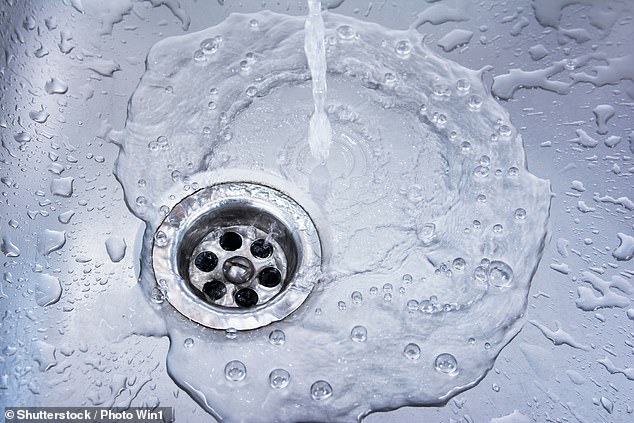Table of Contents
Let’s all shed a tear for those poor, beleaguered water companies.
Not only do they have to deal with annoying questions about why they are pumping so much wastewater into seas and waterways, but many now need to increase their home water bills to ensure adequate service.
Some want to nearly double customers’ water bills between 2025 and 2030.
That’s right: water companies are asking regulator Ofwat for permission to increase bills by up to 84 per cent by 2030, to pay for upgrading the country’s pipes and sewers.
Troubled waters: Water companies have been criticized for the state of wastewater in waterways
The biggest offender is Southern Water, with the anticipated 84 per cent increase mentioned above, but it is by no means the only one. The average bill increase water companies ask for is a staggering 40 percent.
The sheer brazenness of these proposed bill increases is an insult to every water ratepayer in the country, and I’ll explain why.
But first let’s recap the countless mistakes made by water companies that have led us to this unfortunate situation.
The problem began with privatization, 30 years ago.
In 1989, Conservative Prime Minister Margaret Thatcher sold water companies. The government of the time wrote off all its debts, some of which amounted to £5bn, and also gave the companies’ new owners £1.5bn in taxpayer cash to sweeten the deal.
Each water company effectively has a monopoly on supplying water to their local areas. No debt, a fresh start, no competition – you might think these are pretty hard businesses to ruin.
And you would be right in theory, but wrong in practice.
The mistake of these companies was to focus on paying shareholders instead of investing properly in their real jobs: keeping the water running properly and removing wastewater from rivers.
Put a bucket hat on me and call me Jeremy Corbyn, but I don’t believe water should ever be exploited for profit. It is the most essential natural resource and must always be supplied in the cheapest and most efficient way possible.

Down the drain: Many water companies have gone deep into debt and are now paying the price
The UK remains the only country whose 100 per cent of its water is supplied by private companies, and I think we are all starting to see why we are the ones left out.
Unlike other privatized companies, UK water companies, for reasons known only to themselves, almost never ask their shareholders for cash to invest in their businesses.
Instead, consumers’ water bills finance the supply of water and the installation and maintenance of pipes and sewers, some of which still date back to Victorian times.
Since privatization, water companies have invested £160 billion in the UK water network. Now, they say they need to spend around £100 billion by 2030.
Wait, £160bn over three decades and then £100bn in just five years? What is happening?
The answer is that the water companies’ business model of “pay shareholders now and worry about the consequences later” has finally begun to unravel.
Maybe a few renationalised water companies would scare the rest into finally doing the right thing
Most of the cash paid to shareholders comes from water companies that went into debt.
To date, water companies have borrowed a whopping £60.6bn but paid out £78bn to shareholders.
Since interest rates began to rise, so did the cost of paying off that debt.
Now, about 20 percent of every household water bill goes toward paying interest on those debts. But hey, as long as those shareholders get their checks, right?
It is blindingly obvious that if the water companies had managed their improvement works as they went along, perhaps paying the odd dividend here and there, there would be no need for massive debts or a sudden rush of cash now.
The only credit I would give to water companies is that water bills have generally never increased much year over year, although it seems like we’re about to say goodbye to that.
To round off this sorry travesty, water company executives received £9.1 million in bonuses last year, with total pay packages totaling £20 million.
All this while sewage leaks into waterways doubled in 2023 and around 20 percent of drinking water was lost due to pipe leaks. Good job, guys: Mr. Bean would have done a more competent job and at least we would have had a laugh.
Ofwat now has a decision on its hands. Stand firm and allow limited price increases, or give in to water companies’ demands.
The former still allows price increases of an average of 21 percent, although this is better than letting water companies get away with typical increases of 40 percent.
Frankly, I would ban all price increases on water bills to pay for infrastructure improvements. Water company shareholders have had it easy and can now put their hands in their pockets to thank them for three decades of success.
If not, my vote would be to limit or ban the planned price increases and let the water companies complain all they want. If they cannot balance their accounts fairly, they only have their own greed to blame.
Greedy water companies can fix their actions in a way that is fair to consumers, or they should be allowed to go bankrupt.
Maybe a few renationalised water companies would scare the rest into finally doing the right thing.
SAVE MONEY, MAKE MONEY

3.75% APR Var.

3.75% APR Var.
Chase checking account required*
4.91% 6 month solution
4.91% 6 month solution
Increase in interest rates at GB Bank

free share offer

free share offer
No account fee and free stock trading

4.84% cash Isa

4.84% cash Isa
Flexible Isa now accepting transfers

Trading Fee Refund

Trading Fee Refund
Get £200 back in trading fees
Affiliate links: If you purchase a This is Money product you may earn a commission. These offers are chosen by our editorial team as we think they are worth highlighting. This does not affect our editorial independence. *Chase: 3.69% gross. T&Cs apply. 18+, UK residents
Some links in this article may be affiliate links. If you click on them, we may earn a small commission. That helps us fund This Is Money and keep it free to use. We do not write articles to promote products. We do not allow any commercial relationship to affect our editorial independence.


